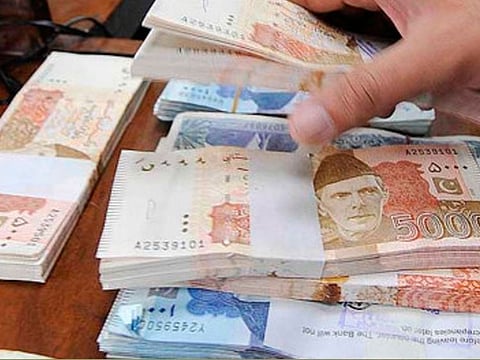Pakistani remittances top $2.3 billion with highest inflows from Saudi Arabia, UAE
UAE and KSA remain key contributors to Pakistan’s remittance inflows in recent months

Islamabad: Remittances from Pakistani workers employed abroad increased to $2.3 billion in November, a 28.4 per cent rise year-on-year and up 2.4 per cent compared to the previous month, the country’s central bank said.
Remittances from overseas Pakistanis have remained over $2 billion for the sixth consecutive month, Prime Minister Imran Khan said, describing it as “good news for Pakistan’s economy.”
Saudi Arabia and the United Arab Emirates (UAE) remained key contributors to Pakistan’s remittance inflows in recent months. In November 2020, overseas Pakistanis sent home $2.34 billion of which 48.5 percent was from Saudi Arabia and UAE, according to the SBP statistics.
Top contributors during first months of FY21
During the first five months of FY21 (July to November 2020), remittances from overseas Pakistanis reached an unprecedented level of US$ 11.7 billion, 26 per cent higher than the same period last year. The top four countries that contributed to the highest inflows are as follows:
1. Saudi Arabia (US$3.3 billion)
2. United Arab Emirates (US$2.4 billion)
3. United Kingdom (US$1.6 billion)
4. United States (US$1 billion).
Remittances inflows from other Gulf Cooperation Council (GCC) countries including Bahrain, Kuwait, Qatar and Oman were US$1.3 billion. Meanwhile, Pakistanis in European countries remitted nearly a similar amount of US$1 billion.
Major factors
Multiple factors contributed to the record-high increase in money transfer to Pakistan. Financial experts say that travel restrictions due to COVID-19 pandemic prompted expatriates to send foreign exchange through proper banking channels which were properly recorded and had a considerable impact on remittance inflows increase.
The State Bank of Pakistan (SBP) said that continual efforts by the government and central bank to formalize remittances under the Pakistan Remittances Initiative (PRI), increasing use of digital channels amid limited cross-border travel and orderly exchange market conditions, are some of the important factors behind the sustained improvement in workers’ remittances.
Pakistan’s crackdown on illegal money transfer channels (Hawala/Hundi) following the recommendations from the international financial watchdog, the Financial Action Task Force (FATF), is also considered crucial in keeping a record of the transactions.
Sign up for the Daily Briefing
Get the latest news and updates straight to your inbox







